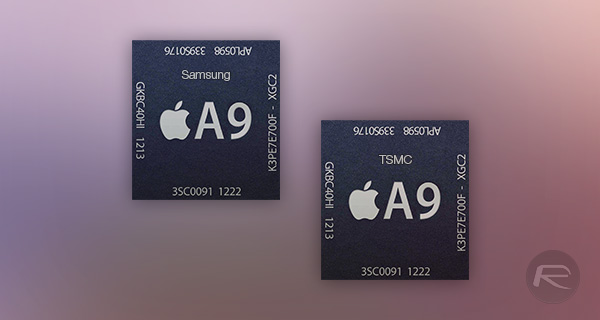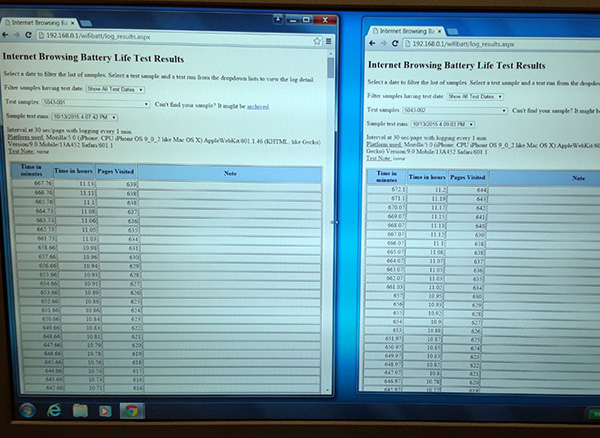Since the iPhone 4 and its unfortunate “antennagate” issue, it seems to have become a custom for iPhone launches to be accompanied by reports of manufacturing defects, and this year was no different. Not long after it was revealed that Apple was dual-sourcing the A9 SoC powering its new iPhone 6s and iPhone 6s Plus from both Samsung and TSMC, performance benchmarks and reports of differences in battery life and heat generation started rolling out onto web from all directions, showing results in favor of TSMC’s A9.
A week later, Apple chimed in with a statement dismissing the new “chipgate” issue, but as was expected, that wasn’t enough to reassure concerned costumers, which is why the big guns have had to step up to the stage to put the whole thing to rest. Only recently, Ars Technica published results of several battery benchmarks that showed negligible differences on a majority of accounts, reinforcing Apple’s claim of a 2-3% difference in consumption between the two chips. Next to weigh in on the matter is Consumer Reports, with immaculately-performed real-world tests that has yielded similar results.

The publication took two T-Mobile iPhone 6s units with different A9 chips running iOS 9.0.2, matched each and every setting on both phones, placed them within a Radio Frequency Isolation chamber to block out stray signals and subjected them to cellular and WiFi usage tests.
The cellular test, which involved constant transmission at “+10 decibels per milliwatt (dBm) on the same channel in the commonly used Frequency Band 5,” showed a difference of less than 2% between the duration the two iPhones stayed powered on, with Samsung one having 2% less battery than TSMC.
The WiFi usage test followed suit, with results showing less than 1% difference in battery life after 11 hours of downloading the same webpages using a custom app and playing a collection of the same 10 songs on a loop. Surface temperature readings for both phones were taken throughout the duration of the second test as well, again, showing a difference of less than 1%.

Data from Consumer Reports’ custom app sent to a Windows PC as it loads a collection of webpages on both iPhone 6s units
Needless to say, owing to the countless variables in play here, results might not be the same for all possible usage scenarios, but as the verdict from Consumer Reports goes, these findings are enough to dismiss any notions of the A9 chip’s make being responsible for reduced battery life.
In a nutshell, if you’ve been cursing your luck for getting an iPhone 6s with the Samsung A9 chip, you can stop now.
(Source: Consumer Reports)
You may also like to check out:
You can follow us on Twitter, add us to your circle on Google+ or like our Facebook page to keep yourself updated on all the latest from Microsoft, Google, Apple and the Web.

